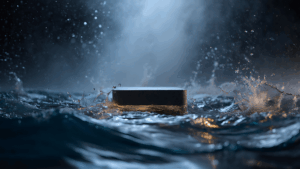Trade effluent is defined as any discharge into the sewerage system that isn’t domestic effluent. Examples of industries generating trade effluent and that therefore require consent are car washes, launderettes, breweries, dairies, chemical manufacturing and farms.
NB: The discharge of potentially harmful chemicals is not classified as trade effluent because they are prohibited from being discharged into the sewers and must instead be disposed of by a specialist contractor.
Why is trade effluent regulated?
Trade effluent is highly variable in terms of volume and contamination strength. Regulation is necessary to ensure the sewerage network can adequately handle and treat the effluent, protect the health and safety of staff, and safeguard the environment from untreated discharge. Improperly managed trade effluent can lead to significant environmental damage, including the pollution of local water bodies and harm to aquatic life.
Is trade effluent consent a legal requirement?
It is a criminal offence to discharge trade effluent waste without consent, and doing so carries the risk of prosecution and fines. Under the Water Industry Act 1991 , it is a legal requirement to seek consent to discharge trade effluent so it can be properly treated. Typically, larger industrial customers must negotiate with their wastewater wholesaler to arrange bespoke consent limits.
Once you have gained consent, you have several obligations to ensure the sewerage system can handle the volume and nature of the effluent. Your business could be liable for the costs of cleanup and repair if it is found to have caused any damage to the sewerage system by trade effluent discharges that do not have consent. Consistent breaches could result in an unlimited fine, legal action, and possible imprisonment. Your business would also be liable for cleanup charges, legal costs, and the reputational damage leading to a potential loss of custom.
How to apply for trade effluent consent
Applying for trade effluent consent involves several steps, starting with consulting your local water authority. This early consultation is crucial, particularly if you are setting up a new business or expanding operations. The authority will provide guidance on the necessary documentation and requirements based on the specific nature of your trade effluent. The application process typically includes providing detailed information about the types of effluent your business will produce, the expected volume, and how you plan to manage it.
How to comply with trade effluent requirements
Every consent comes with its own requirements which you are legally bound to adhere to. The requirements cover limits on pH levels, Chemical Oxygen Demand (COD), suspended solids and temperature. They may also cover chemicals and metals, with maximum volumes and discharge rates which you will be required to adhere to.
Best practices:
- Pre-treatment of effluent: Implementing pre-treatment processes before discharging effluent can significantly reduce contaminants, ensuring compliance with your consent. Methods such as filtration, pH adjustment, or chemical treatment are commonly used.
- Effluent reduction strategies: Reducing the volume and contamination strength of your effluent through strategies like water recycling and optimising production processes not only helps in compliance but can also lower operational costs.
How to monitor trade effluent
You will be required to monitor effluent, and your consent will specify how often samples need to be taken, how they need to be stored, and the monitoring equipment you use. For the safety of the environment, accuracy is important when monitoring samples, so you must ensure staff are fully trained on how to take samples and operate the equipment, and you must keep detailed and accurate records. The data collected can be used to monitor your company’s activities, ensuring that you keep within the limits of your consent.
Your local water authority will monitor the quality and quantity of your effluent to ensure you are adhering to the limits of your consent. Utilising the latest monitoring technologies, such as automated systems that provide real-time data and alerts, can enhance the accuracy and reliability of your monitoring processes, helping prevent breaches of consent.
Changes to trade effluent
Any operational changes you make that will have an impact on your trade effluent will change the nature of the consent your company needs. It is essential to promptly communicate these changes to your local water authority. Failure to do so can result in your business inadvertently breaching its consent, leading to penalties.
Regional variations between England and Scotland
While trade effluent regulations are broadly similar across the UK, there may be specific differences between England and Scotland that businesses operating in both regions should be aware of. It’s important to consult the relevant local water authorities in each region to ensure full compliance.
Consequences of non-compliance
The consequences of non-compliance extend beyond legal and financial penalties. Environmental harm caused by improper effluent management can lead to long-term damage to local ecosystems, with severe repercussions for both the environment and public health. Additionally, businesses that fail to comply with trade effluent regulations risk significant reputational damage, which can result in a loss of customer trust and revenue.
Engaging with the community
To maintain good relations with the local community, consider being transparent about your trade effluent management practices. Engaging in local environmental initiatives and openly communicating about your efforts to minimise environmental impact can enhance your business’s reputation and strengthen community ties.
Future Developments in regulation
Regulations governing trade effluent are subject to change as environmental concerns evolve. Staying informed about potential regulatory changes and adopting sustainable practices can help your business remain compliant and proactive in minimising environmental impact.
How Castle Water can help your business
At Castle Water, we’re committed to helping your business navigate compliance challenges, ensuring you meet regulatory obligations while minimising environmental impact and reducing the risk of unexpected costs. If you would like to discuss your trade effluent consent requirements, simply email trade.effluent@castlewater.co.uk to connect with our team today. Alternatively, click here to explore common trade effluent FAQs.



